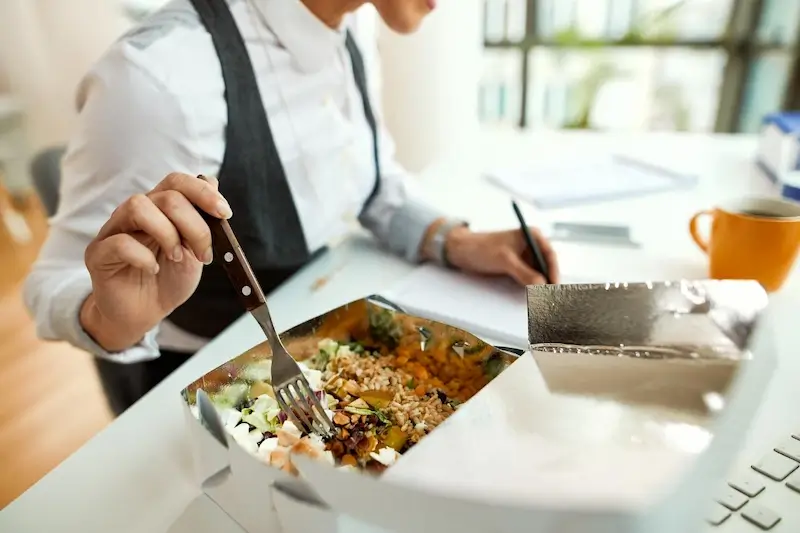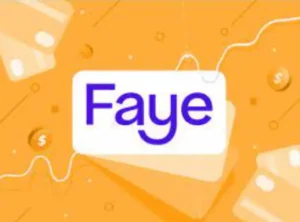In the bustling world of culinary entrepreneurship, where the sizzle of creativity meets the practicality of running a business, restaurant owners often find themselves on a precarious tightrope. One unforeseen event can turn the aroma of success into a bitter taste of financial strain. This is where the prudent step of securing restaurant insurance comes into play, safeguarding your culinary dreams from the unpredictable gusts of the business world.

Table of Contents
- Insure Your Culinary Dreams: Navigating the World of Business Restaurant Insurance
- Understanding the Landscape: What is Restaurant Insurance?
- The Art of Securing Culinary Fortification
- Conclusion: Safeguarding Your Culinary Legacy
- Frequently Asked Questions (FAQs) About Restaurant Insurance and Business Operations
- What insurance does a restaurant need in the UK?
- How much does insurance cost for a restaurant in California?
- How much is insurance for a restaurant in Florida?
- What commercial insurance do I need?
- Do I need a license to open a restaurant in the UK?
- What licenses do you need to open a restaurant in the UK?
- What is the minimum insurance requirement in the UK?
- What insurance is mandatory for a business in the UK?
- What is the average revenue of a restaurant in the UK?
- Does insurance cover food poisoning?
- Do you need a cover letter for a restaurant?
- What type of insurance is sold to small businesses?
- What type of insurance do you need to run a business?
- What does flip insurance cover?
Insure Your Culinary Dreams: Navigating the World of Business Restaurant Insurance
Understanding the Landscape: What is Restaurant Insurance?
Restaurant insurance is not a one-size-fits-all shield; instead, it’s a bespoke suit tailored to the unique challenges faced by those in the food and beverage industry. Whether you’re a trendy bar in Brooklyn, a fine dining establishment in New York, or a quaint cafe in California, having the right insurance coverage is as crucial as selecting the finest ingredients for your signature dish.
Exploring the Cost Dynamics
The question on every restaurateur’s mind is often, “What is the cost of insuring my culinary venture?” Much like crafting a delectable dish, the answer depends on many factors. From the location, such as the bustling streets of New York or the laid-back ambiance of a California suburb, to the type of establishment – be it a trendy bar or a family-friendly restaurant – the cost of restaurant insurance varies.
For those embarking on the journey of restaurant ownership in the diverse culinary landscape of California, it’s imperative to delve into the intricacies of California restaurant insurance. Similarly, the stakes are high in the competitive realm of New York, necessitating a nuanced understanding of New York restaurant insurance.
Unpacking Coverage: More Than Just Liability
While liability insurance is a cornerstone of restaurant insurance, the coverage extends far beyond protecting against slip-and-fall claims. Savvy restaurant owners explore comprehensive policies encompassing the risks their businesses face.
Liability insurance for restaurants is the safety net that guards against bodily injury claims, property damage, or even the complexities of alcohol-related incidents. But what about the broader picture? A holistic approach involves scrutinizing restaurant business insurance, encompassing everything from property damage to employee injuries.
Demystifying Insurance Jargon: A Guide for the Perplexed
The insurance realm often seems like an arcane language, with terms like “rated restaurant insurance” and “business insurance for restaurants” swirling around. Let’s demystify some of these terms to empower restaurant owners in their quest for the ideal insurance coverage.
Rated Restaurant Insurance: Striving for Excellence
“Rated restaurant insurance” is not a mere label; it’s a testament to the insurer’s acknowledgment of the unique risks faced by the culinary world. For those seeking the pinnacle of protection, opting for a rated restaurant insurance policy is akin to earning a Michelin star in the insurance arena.
Business Insurance for Restaurants: Beyond the Basics
Business insurance for restaurants transcends the basics, encompassing a myriad of coverages essential for sustained success. From property insurance that shields against fire or theft to business interruption coverage that mitigates losses during unforeseen closures, a comprehensive business insurance policy for restaurants is a multifaceted shield.
Navigating the Market: Quotes and Companies
In the labyrinth of insurance options, securing the best coverage involves understanding the nuances of policies and obtaining tailored restaurant insurance quotes. Much like crafting a signature dish, this process requires patience and precision.
Restaurant insurance companies are not created equal; some specialize in specific niches, catering to the unique needs of bars or eateries. The discerning restaurant owner seeks quotes from companies attuned to the intricacies of the culinary world, ensuring that the coverage aligns seamlessly with the business model.
Beyond Borders: Restaurant Insurance in Different States
The geographical nuances of the culinary landscape play a pivotal role in shaping insurance needs. For instance, restaurant insurance in New York demands an understanding of the fast-paced, high-stakes environment characteristic of the Big Apple. On the flip side, restaurant insurance in California requires a grasp of the laid-back yet competitive ambiance that defines the Golden State.
Texas to Brooklyn: Diverse Terrains, Diverse Coverages
From the Lone Star State to the trendy borough of Brooklyn, the diversity of culinary establishments demands tailored insurance solutions. Texas restaurant insurance grapples with the state’s vastness, acknowledging restaurants’ unique challenges in sprawling urban centers and quaint rural locales. Meanwhile, Brooklyn restaurant insurance navigates the dynamic and ever-evolving landscape of one of the world’s culinary capitals.
The Art of Securing Culinary Fortification

As restaurant owners embark on the quest to safeguard their culinary dreams, a strategic approach to insurance becomes paramount. It’s not just about mitigating risks; it’s about fortifying the foundation of your business against the unexpected gusts that may threaten its stability.
The Owner’s Dilemma: Balancing Costs and Coverages
The prudent owner acknowledges that the restaurant insurance cost is an investment rather than an expense. Striking the right balance between comprehensive coverage and financial feasibility is an art that requires a deep understanding of the business landscape.
Types of Coverage: A Menu of Options
Just as a diverse menu caters to various palates, a well-rounded insurance policy offers an array of coverages. From general liability insurance that shields against customer injuries to product liability insurance that protects against claims related to the food or beverages served, the discerning owner crafts a menu of coverages tailored to the unique risks of their establishment.
The Beverage Conundrum: Bar Insurance
For those whose culinary dreams include the clinking of glasses and the mixology of crafted cocktails, bar insurance becomes an integral component. Protecting against the nuances of serving alcoholic beverages, this specialized coverage ensures that the intoxicating allure of the bar doesn’t lead to legal intoxication.
Average Costs and Tavern Tales
Understanding the average costs of restaurant insurance is akin to deciphering the tales of a tavern. It involves unraveling the intricacies of premiums, deductibles, and coverage limits, creating a narrative that aligns with the business’s financial health.
Small Business, Big Risks: Insurance for Small Business
Small businesses have high stakes, including quaint cafes and family-owned restaurants. Insurance for small businesses becomes a lifeline, protecting against risks that could otherwise jeopardize the very existence of these culinary gems.
Crafting the Perfect Policy: Tailoring to Your Business
Much like a chef curates a menu to reflect the essence of their culinary vision, the discerning owner tailors their insurance policy to mirror the intricacies of their business. This involves meeting legal requirements and surpassing them to create a robust shield against the unpredictable.
Conclusion: Safeguarding Your Culinary Legacy
In gastronomy, where passion meets practicality, securing your culinary dreams involves more than perfecting recipes and ambiance. It necessitates a strategic approach to restaurant insurance, where each coverage and policy is a brushstroke on the canvas of your culinary legacy.
So, as you navigate the labyrinth of insurance options, remember that insuring your restaurant is not just a financial decision; it’s a commitment to protecting the essence of your culinary artistry against the unforeseen storms of the business world. Choose wisely, for in the realm of insurance, as in the kitchen, precision, and foresight are the key ingredients to a delectable and enduring success.
Frequently Asked Questions (FAQs) About Restaurant Insurance and Business Operations
What insurance does a restaurant need in the UK?
In the UK, restaurants often require several types of insurance to ensure comprehensive coverage.
- Public Liability Insurance: Protects against claims for injury or property damage caused to customers or members of the public on the premises.
- Employer’s Liability Insurance: Mandatory if the restaurant has employees, covering costs related to employee injuries or illnesses during work.
- Property Insurance: Safeguards the restaurant’s physical assets, including the building, equipment, and inventory, against risks like fire, theft, or vandalism.
- Business Interruption Insurance: Crucial for covering financial losses in the event of a temporary closure due to unforeseen circumstances, ensuring continued financial stability.
How much does insurance cost for a restaurant in California?
The cost of restaurant insurance in California is influenced by various factors, including:
- Location: Urban areas may have higher premiums due to increased risks.
- Size and Type of Cuisine: Fine-dining establishments or those with more complex operations might have higher insurance costs.
- Claims History: A history of claims can impact premiums, as insurers may consider past incidents indicative of future risks.
On average, smaller restaurants may incur annual insurance costs ranging from $2,000 to $6,000, but precise quotes depend on the restaurant’s unique characteristics.
How much is insurance for a restaurant in Florida?
Like California, insurance costs for a restaurant in Florida are influenced by location, size, and operational intricacies. Variables such as proximity to coastal areas or crime-prone zones can affect prices. On average, smaller establishments might face annual premiums between $2,000 and $6,000, but tailored quotes are essential for accurate estimates.
What commercial insurance do I need?
Commercial insurance for restaurants encompasses various coverages, including:
- Public Liability Insurance: Protects against claims from the public for injuries or property damage.
- Employer’s Liability Insurance: Covers employee injuries or illnesses sustained during work.
- Property Insurance: Safeguards physical assets against damage or loss.
- Business Interruption Insurance: Covers lost income during temporary closures.
The specific mix of these coverages depends on the restaurant’s unique needs.
Do I need a license to open a restaurant in the UK?
Yes, opening a restaurant in the UK requires obtaining specific licenses to ensure legal compliance. Key licenses include:
- Premises License: Authorizes the sale of alcohol and regulates other licensable activities.
- Food Hygiene Certificate: Ensures adherence to food safety regulations.
- Late Night Refreshment License: Necessary for establishments serving food between 11 pm and 5 am.
Fulfilling these licensing requirements is critical for lawful operation.
What licenses do you need to open a restaurant in the UK?
The licenses needed to open a restaurant in the UK include:
- Premises License: Essential for selling alcohol and regulating other licensable activities.
- Food Hygiene Certificate: Ensures compliance with food safety regulations.
- Late Night Refreshment License: Required for establishments serving food during late hours.
Each license serves a specific purpose and is crucial for maintaining legal standing.
What is the minimum insurance requirement in the UK?
While there is no strict minimum requirement, Public Liability Insurance is often considered essential for restaurants in the UK. The amount of coverage needed may vary, and it’s advisable to assess specific business needs to determine appropriate insurance levels.
What insurance is mandatory for a business in the UK?
Employer’s Liability Insurance is mandatory for businesses in the UK that employ staff. This coverage protects against claims from employee injuries or illnesses sustained during work.
What is the average revenue of a restaurant in the UK?
The average revenue of a restaurant in the UK varies widely based on factors such as location, size, and type of cuisine. Small to medium-sized restaurants may generate annual revenues ranging from £200,000 to £1 million. Precise figures depend on the restaurant’s unique characteristics.
Does insurance cover food poisoning?
Yes, Product Liability Insurance is a coverage that protects against claims related to foodborne illnesses or other health issues caused by the consumption of food or beverages served by the restaurant. This coverage is crucial for mitigating risks associated with potential health-related incidents.
Do you need a cover letter for a restaurant?
While not a strict requirement, submitting a cover letter when applying for a restaurant job can significantly enhance your application. A cover letter allows you to express enthusiasm, highlight relevant skills, and make a compelling case for why you are the ideal candidate for the position.
What type of insurance is sold to small businesses?
Several types of insurance are sold to small businesses, including:
- General Liability Insurance: Protects against common risks, including bodily injury and property damage.
- Professional Liability Insurance: Covers professional services against errors or negligence claims.
- Commercial Property Insurance: Safeguards physical assets against damage or loss.
- Business Owner’s Policy (BOP): Bundles various coverages into a comprehensive package tailored for small businesses.
Each type of insurance addresses specific aspects of risk management for small businesses.
What type of insurance do you need to run a business?
Essential types of insurance needed to run a business include:
- General Liability Insurance: Protects against common risks, such as bodily injury or property damage.
- Property Insurance: Safeguards physical assets against damage or loss.
- Business Interruption Insurance: Covers lost income during temporary closures.
- Workers’ Compensation Insurance: Mandatory if the business has employees, covering costs related to employee injuries or illnesses sustained during work.
The specific mix of these coverages depends on the nature of the business.
What does flip insurance cover?
FLIP (Food Liability Insurance Program) is designed for food businesses and provides coverage for various liabilities, including:
- General Liability: Covers bodily injury and property damage claims.
- Product Liability: Protects against suits related to illnesses caused by consuming the business’s products.
- Damage to Rented Premises: Covers damage to rented spaces.
FLIP insurance is tailored to the unique risks faced by those in the food industry, providing comprehensive protection against potential liabilities.




